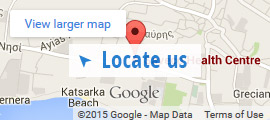
Swine flu
H1N1 flu virus also known as swine flu is a global outbreak of a new strain of influenza that was first identified in April 2009. The out break was first observed in Mexico, the Mexican government closed the city and its public services in order to contain the virus as it quickly began to spread globally.
The name itself has generated a lot of fear and anxiety, it is important to remember that the swine flu is an Influenza A type virus which means it is another type of flu virus (H1N1) which causes symptoms similar to the seasonal flu symptoms. It has been able to spread very quickly from person to person as most of us do not have any immunity to the new virus, which is why it so easily became a pandemic.
The virus was originally referred to as swine flu due to testing of the virus which showed that many of the genes in this new virus were similar to influenza viruses that normally occur in pigs in North America. Further studies of the virus revealed that it was different from what normally circulates in North American pigs. Tests showed there were two genes from flu viruses that normally circulate in pigs in Europe and Asia, bird genes and human genes. This is what scientists call a quadruple reassortant virus.
Illness from the H1N1 flu virus has ranged from mild to severe and most people have recovered without the need of medical treatment, hospitalization and deaths from infection with this virus have occurred.
With seasonal flu there are certain people who are at high risk of serious complications such as persons of any age with chronic medical conditions, persons 65 years and older, children under the age of five and woman who are pregnant. It has been estimated that around 70% of persons hospitalized with the H1N1 virus had one or more medical condition placing them at high risk of seasonal flu related complications e.g. diabetes, asthma, copd, heart disease, kidney disease and pregnancy.
The ministry of health in Cyprus has been very proactive with information and guidelines on the H1N1 virus for both the general public, Schools, private and government health services and visitors to Cyprus.
Our health centre in Ayia Napa treated many cases of flu like symptoms, in which our patients were treated and advised accordingly. Only a few of our patients required hospitalization and all went on to recover within a few days.
Many of our patients in Ayia Napa attended our medical centre this year through fear of the H1N1 virus which required a very sensitive approach and thorough assessment of there complaints. Guidelines from the ministry of health were adhered to, with many only requiring treatment for complaints none related to the H1N1 virus. Should you require any further information during your holiday in Ayia Napa please contact our surgery were our staff our fully trained to advice.
It is advised that you keep a working thermometer and know how to use this as an increase in temperature is one of the main symptoms of swine flu. It is important to remember that other conditions can cause the same symptoms. A rapid test can be offered, but a negative test does not mean that you do not have flu; results will depend on the collection method and how much viral sample a person is shedding at the time of testing. A laboratory test will confirm if you have swine flu or not.
If you think you may have swine flu during your holiday in Ayia Napa and would like further information on rapid testing please contact our surgery in Ayia Napa where our medical staff will be happy to help. Our team here at the Ayia Napa clinic are fully up to date with recent developments treatment and advice on the H1N1 influenza virus.
SWINE FLU SYMPTOMS
The virus is spread in the same way as seasonal flu, it is contained in the millions of tiny droplets that come out of the nose and mouth when a person coughs talks or sneezes. The average sneeze travels at around 80 miles per hour, and can cover distances of up to thirty feet. These droplets can hang in the air and land on surfaces, where they can survive for up to 24hrs, any one touching these surfaces can spread the virus by touching other objects and surfaces such as food, door handles, telephones remote controls, hand rails computers ect. People usually become infected when they pick up the virus on there hands from contaminated surfaces and then placing there hands near the mouth or nose. The virus can also be airborne and when suspended in the air a person can breathe the virus in.
Scientists and doctors now know much more about the swine flu and how to prevent it spreading. Many cases of swine flu have been mild, with symptoms very similar to the seasonal flu. A small number of people have had more serious symptoms which have required hospitalization. It is important for people to understand the symptoms of swine flu so that it can be treated from a very early stage. People at higher risk of complications include:
- persons aged 65 and older
- children younger than five years old
- pregnant women (especially during the third trimester)
- Persons with underlying medical conditions these include asthma, copd diabetes, heart disease, kidney disease.
- weakened immune system (e.g. taking immunosuppressive medications or persons with HIV)
The symptoms of swine flu are similar to other influenzas. If you have a fever or a high temperature 38 degrees or over and have two or more of the following symptoms you may have swine flu.
- Runny nose
- Sore throat
- Headache
- Unusual tiredness
- Loss of appetite
- Shortness of breath or cough
- Aching muscles
- Diarrhoea and vomiting.
It is advised that you keep a working thermometer and know how to use this as an increase in temperature is one of the main symptoms of swine flu. It is important to remember that other conditions can cause the same symptoms. A rapid test can be offered, but a negative test does not mean that you do not have flu; results will depend on the collection method and how much viral sample a person is shedding at the time of testing. A laboratory test will confirm if you have swine flu or not.
If you think you may have swine flu during your holiday in Ayia Napa and would like further information on rapid testing please contact our surgery in Ayia Napa where our medical staff will be happy to help. Our team here at the Ayia Napa clinic are fully up to date with recent developments treatment and advice on the H1N1 influenza virus.
in Agia Napa?
Giourin Gkagkarin 29,
5330 Ayia Napa
P.O. Box 30868,
5346 Ayia Napa,
Cyprus
in Larnaca?
Evagora Pieridi 11,
Larnaca





